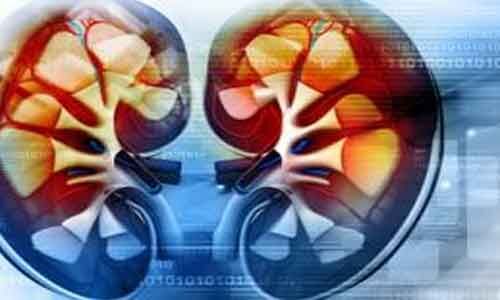- Home
- Medical news & Guidelines
- Anesthesiology
- Cardiology and CTVS
- Critical Care
- Dentistry
- Dermatology
- Diabetes and Endocrinology
- ENT
- Gastroenterology
- Medicine
- Nephrology
- Neurology
- Obstretics-Gynaecology
- Oncology
- Ophthalmology
- Orthopaedics
- Pediatrics-Neonatology
- Psychiatry
- Pulmonology
- Radiology
- Surgery
- Urology
- Laboratory Medicine
- Diet
- Nursing
- Paramedical
- Physiotherapy
- Health news
- Fact Check
- Bone Health Fact Check
- Brain Health Fact Check
- Cancer Related Fact Check
- Child Care Fact Check
- Dental and oral health fact check
- Diabetes and metabolic health fact check
- Diet and Nutrition Fact Check
- Eye and ENT Care Fact Check
- Fitness fact check
- Gut health fact check
- Heart health fact check
- Kidney health fact check
- Medical education fact check
- Men's health fact check
- Respiratory fact check
- Skin and hair care fact check
- Vaccine and Immunization fact check
- Women's health fact check
- AYUSH
- State News
- Andaman and Nicobar Islands
- Andhra Pradesh
- Arunachal Pradesh
- Assam
- Bihar
- Chandigarh
- Chattisgarh
- Dadra and Nagar Haveli
- Daman and Diu
- Delhi
- Goa
- Gujarat
- Haryana
- Himachal Pradesh
- Jammu & Kashmir
- Jharkhand
- Karnataka
- Kerala
- Ladakh
- Lakshadweep
- Madhya Pradesh
- Maharashtra
- Manipur
- Meghalaya
- Mizoram
- Nagaland
- Odisha
- Puducherry
- Punjab
- Rajasthan
- Sikkim
- Tamil Nadu
- Telangana
- Tripura
- Uttar Pradesh
- Uttrakhand
- West Bengal
- Medical Education
- Industry
Indian researchers find way for early detection of kidney disease in diabetes patients

India: A recent study has revealed a way out for detecting diabetes-related kidney disease before onset. According to the study, urinary asymmetric to symmetric dimethylarginine ratio (ASR) can be a potential diagnostic biomarker for diabetic nephropathy among the Asian Indians. The study is published in the journal Scientific Reports.
India is a habitat of the world's largest population of diabetes patients. A large number of these patients are at risk of developing kidney failure as a consequence of the condition. Early detection of diabetes patients at risk of developing kidney disease would help them to take preventive measures against the disease onset.
A team of scientists from the National Chemical Laboratory (CSIR-NCL) in Pune, researchers from the Madras Diabetes Research Foundation (MDRF) in Chennai, and from the National Institute of Mental Health and Neurosciences (NIMHANS) in Bengaluru aimed to evaluate urinary asymmetric to symmetric dimethylarginine ratio (ASR) for early prediction of diabetic nephropathy (DN).
The study involved 500 patients with diabetes. Their urine samples were routinely screened and researchers observed biomarkers in these samples.
The scientists looked for the presence of a particular group of compounds, which are known to be present in lower levels in the urine of individuals who have begun to develop this type of kidney failure. By studying the varying levels of the presence of the compound in different individuals, scientists were able to determine at what point an individual begins to develop kidney disease. This allowed them to determine who was at a higher risk of developing diabetes-related kidney disease.
"Around 16 to 17 percent of the Indian population is at a high risk of developing a chronic kidney issue because of diabetes," explains Dr Gokulakrishnan, Assistant Professor from the Department of Neurochemistry at NIMHANS, who was also part of the team leading the study.
Going forward, the researchers hope that their findings will be applied in a clinical setting, and the treatment for diabetic patients at risk of kidney disease can be tailored accordingly.
The study, "Plausible diagnostic value of urinary isomeric dimethylarginine ratio for diabetic nephropathy," is published in the journal Scientific Reports.
DOI: https://doi.org/10.1038/s41598-020-59897-1
Dr Kamal Kant Kohli-MBBS, DTCD- a chest specialist with more than 30 years of practice and a flair for writing clinical articles, Dr Kamal Kant Kohli joined Medical Dialogues as a Chief Editor of Medical News. Besides writing articles, as an editor, he proofreads and verifies all the medical content published on Medical Dialogues including those coming from journals, studies,medical conferences,guidelines etc. Email: drkohli@medicaldialogues.in. Contact no. 011-43720751


